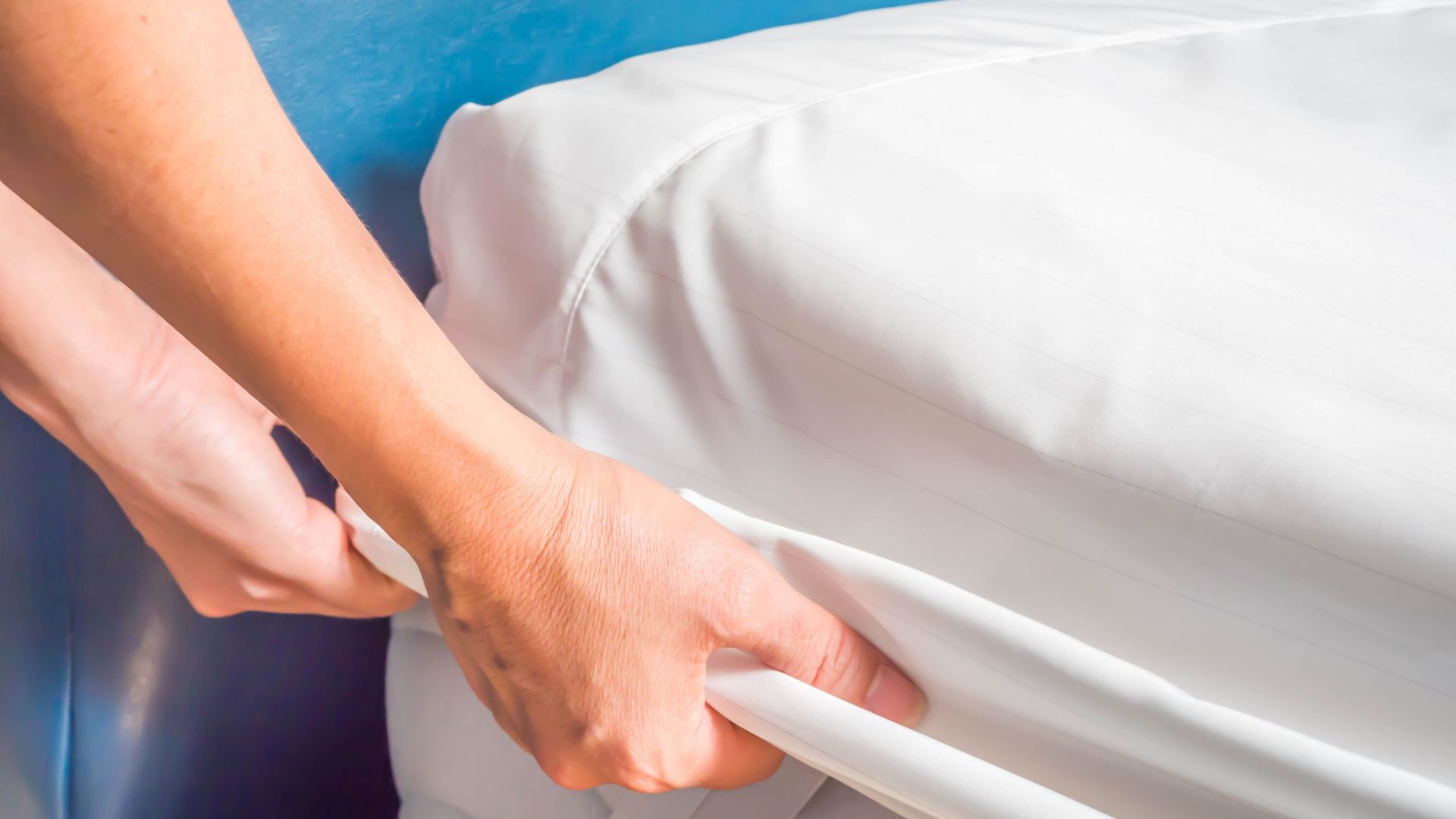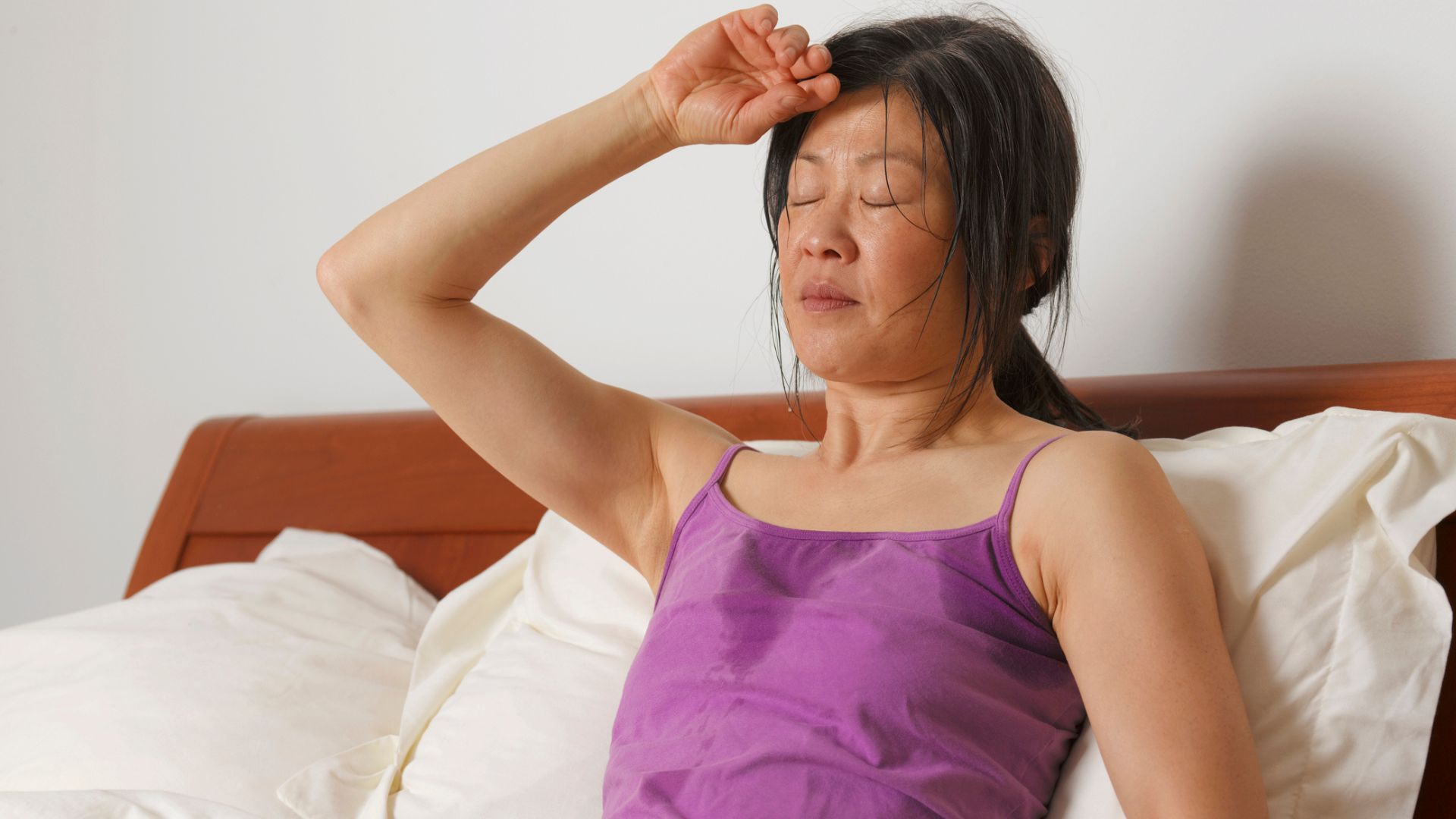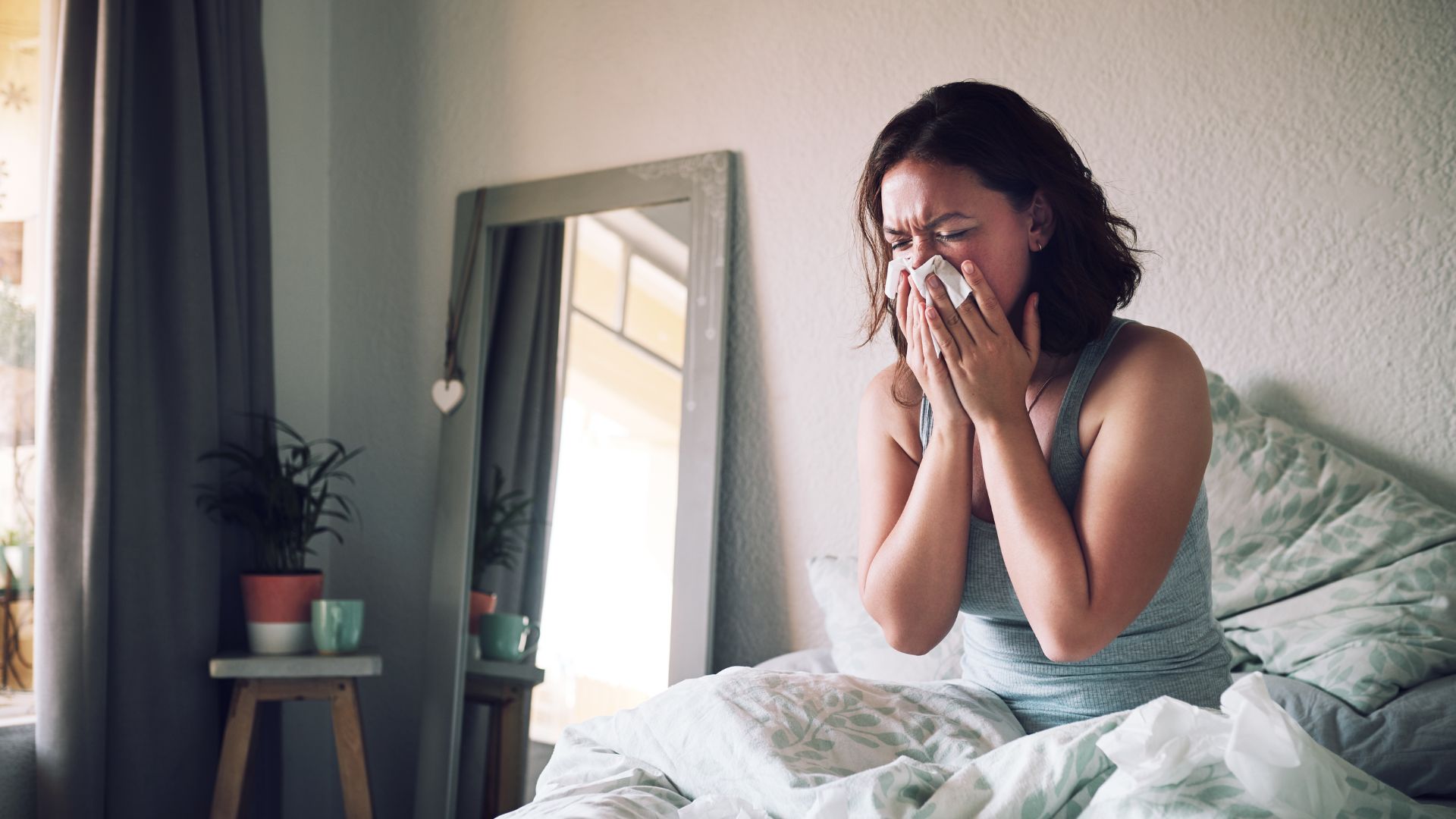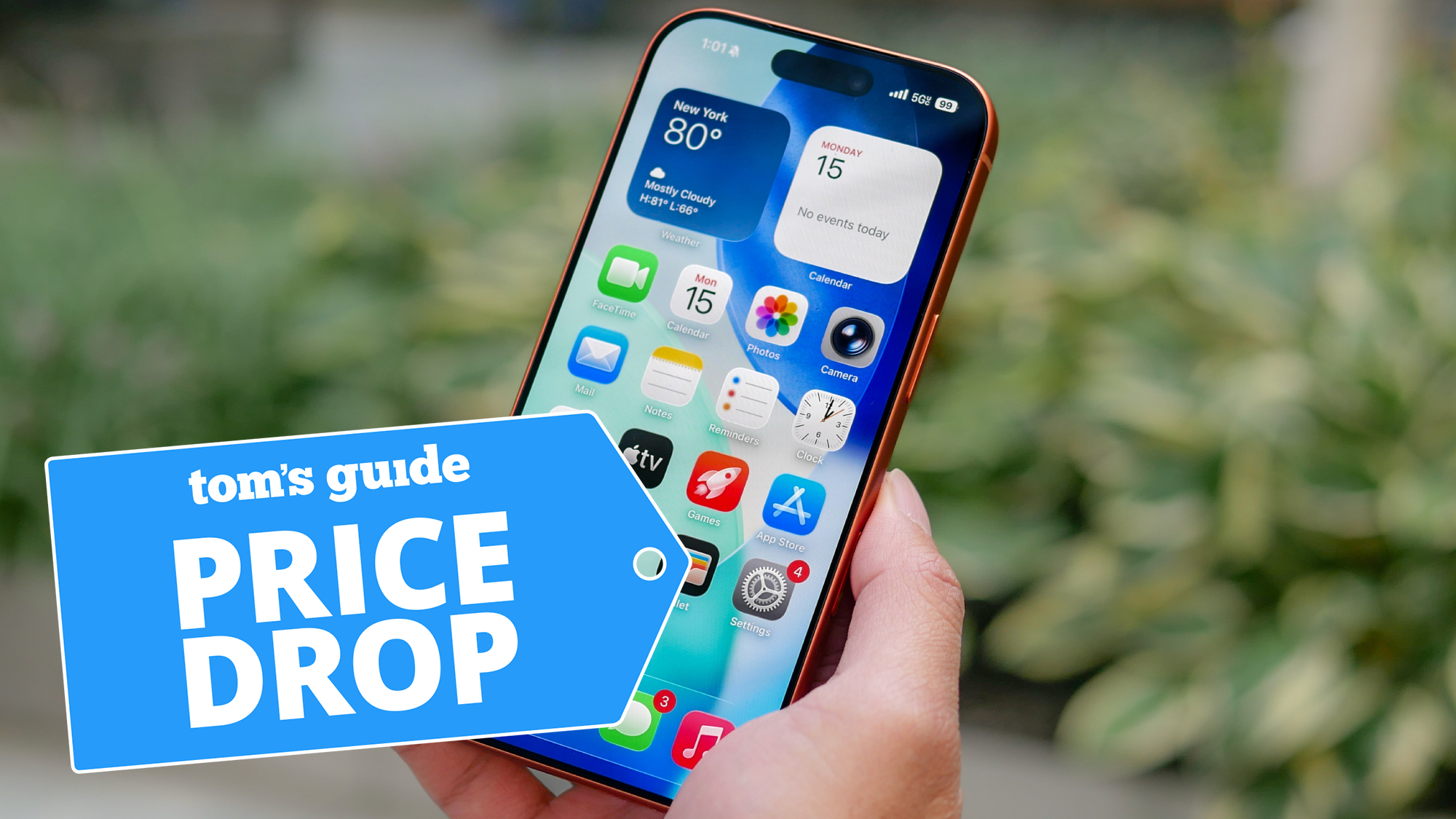I'm a bedding expert and these are my 5 sure-fire tips for choosing a mattress protector in the Memorial Day sales
A good mattress protector is a bedding essential. Here’s how to find the right one to boost your sleep…

Here at Tom’s Guide our expert editors are committed to bringing you the best news, reviews and guides to help you stay informed and ahead of the curve!
You are now subscribed
Your newsletter sign-up was successful
Want to add more newsletters?

Daily (Mon-Sun)
Tom's Guide Daily
Sign up to get the latest updates on all of your favorite content! From cutting-edge tech news and the hottest streaming buzz to unbeatable deals on the best products and in-depth reviews, we’ve got you covered.

Weekly on Thursday
Tom's AI Guide
Be AI savvy with your weekly newsletter summing up all the biggest AI news you need to know. Plus, analysis from our AI editor and tips on how to use the latest AI tools!

Weekly on Friday
Tom's iGuide
Unlock the vast world of Apple news straight to your inbox. With coverage on everything from exciting product launches to essential software updates, this is your go-to source for the latest updates on all the best Apple content.

Weekly on Monday
Tom's Streaming Guide
Our weekly newsletter is expertly crafted to immerse you in the world of streaming. Stay updated on the latest releases and our top recommendations across your favorite streaming platforms.
Join the club
Get full access to premium articles, exclusive features and a growing list of member rewards.
Even the best mattresses need protection against dust, dirt, bed bugs, and accidental spills and stains, so that they can deliver a clean environment for sleep. And yet, a mattress protector is one of the most underrated bedding essentials out there.
While all the recommendations in our best mattress protector guide are designed to keep your bed safe, there are a few key considerations to help ensure you choose the right one for your preferences and environment.
Right now, the Memorial Day mattress sales are running: they're one of the best times of year to grab a top deal on all bedding items, including mattress protectors. But don't just pick a random one off the shelf — ask yourself these five questions first...
5 questions to ask
1. Does it need to be waterproof?
Not all mattress protectors are waterproof — many are water-resistant, which means that heavy spillages will seep through unless you deal with them quickly — so consider your risk level.
No one is immune from accidental mishaps like spills, leaks or stains, but if you have a toddler or pet at home, it's even more important to choose a waterproof mattress protector that will prevent liquids from seeping into your bed.
Mattress protectors are generally made waterproof with the help of TPU (Thermoplastic Polyurethane) backing between the layers. Cheap models are often noisy when you move around, so it's worth choosing a model that's been independently tested and proven to be noiseless. We recommend the Coop Home Goods Ultra Tech mattress protector, which we gave 4.5 out of 5 stars in our review.
2. Do you overheat when you sleep?

While it's unlikely that a mattress protector will cause you to overheat, it could certainly make you a little warmer — particularly if you're a hot sleeper, and particularly if you use it on a cheaper memory foam mattress, because these can retain heat.
Get instant access to breaking news, the hottest reviews, great deals and helpful tips.
If you're prone to overheating while you sleep, look for a cooling mattress protector. These are crafted from breathable materials that are designed to wick away moisture and transfer any excess heat trapped on the mattress surface. A good example is the Sijo Airyweight Eucalyptus mattress protector. It's made from plant-derived Tencel-Lyocell fibers, which are known to be naturally soft, breathable, and cool-to-touch.
3. Do you have allergies?
If you're constantly triggered by dust or pollen, you need a hypoallergenic mattress protector. These work by creating a barrier against common allergens like dust mites, pet dander and pollen, helping reduce sneezing, itching and other symptoms. They're especially beneficial for anyone suffering from asthma and other respiratory health conditions, which can worsen with constant exposure to dust.
Look out for protectors made from tightly woven and naturally hypoallergenic fabrics, such as organic cotton and bamboo, or those that incorporate additional layers to prevent allergens from getting into your bed. A good option is the Brooklyn Bedding Luxury Cooling mattress protector, which has 30% off for Memorial Day and currently starts at around $70.

4. Do you need a mattress encasement instead?
A mattress encasement is similar in look, feel and design to a protector — but it works slightly differently. As the name suggests, it completely envelops your mattress and is zipped up to provide 360-degree protection to help prevent bed bugs, dust mites and other allergens from entering into your mattress.
No matter how hard you try, bed bugs can still make their way through to your mattress, unless you use an encasement. So if a bed bug infestation is something you're particularly concerned about, a mattress encasement is a better investment than a protector.
5. What's your budget?
Mattress protectors come in a wide range of prices, so if you can, it's important to balance affordability with long-term value.
You can find basic mattress protectors below $20, such as the Utopia Bedding Waterproof Bamboo mattress protector. It performed well in our tests - but the material was so silk it came loose every night we slept on it.
You'll generally pay more for mattress protectors that provide a better experience. For example, waterproof options that use double TPU backing to reduce any crinkling noise, or cooling mattress protectors with breathable materials, will be more expensive.
However, you can get good discounts during major retail events like the Memorial Day sales. The top-recommendation in our mattress protector guide is the Purple Mattress Protector, which has 20% off for Memorial Day (it starts from $63 at Purple, down from $79 —but some sizes have sold out).

Becky is a Sleep Staff Writer at Tom’s Guide covering all things sleep-related including product reviews, research studies, news and explainers. She works on specialist bedding content and is responsible for buyer’s guides like the best pillows for all sleepers and best mattress protectors focusing on popular brands such as Tempur-Pedic, Avocado, Coop Home Goods and more. Becky is a PPA accredited journalist who is keen to explore the intricacies of sleep, its effects on skincare, mental wellbeing and work performance. While not thinking of sleep, she can be seen reading in cosy bookshops or learning about global food culture.
You must confirm your public display name before commenting
Please logout and then login again, you will then be prompted to enter your display name.
 Club Benefits
Club Benefits










